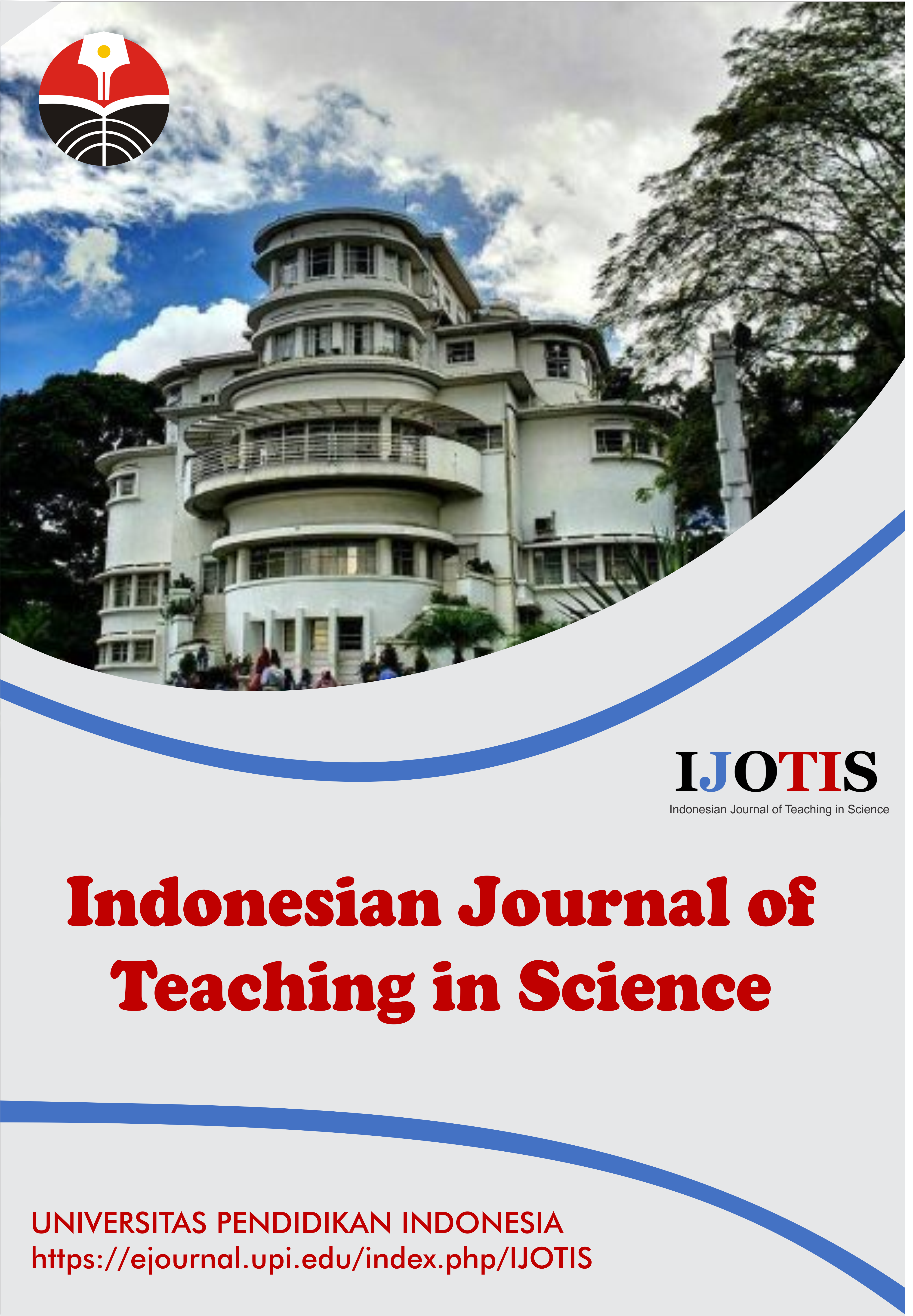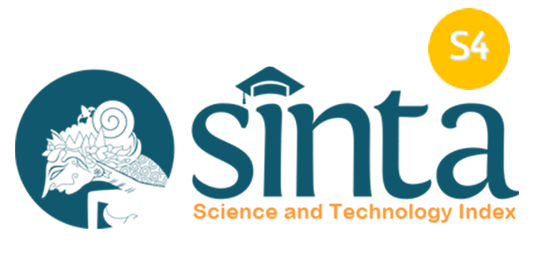Junior High School Students' Interest in Science Learning: A Case Study
Abstract
Keywords
Full Text:
PDFReferences
Aldrup, K., Carstensen, B., and Klusmann, U. (2022). Is empathy the key to effective teaching? A systematic review of its association with teacher-student interactions and student outcomes. Educational Psychology Review, 34(3), 1177-1216.
Anderhag, P., Hamza, K. M., and Wickman, P. O. (2015). What can a teacher do to support student's interest in science? a study of the constitution of taste in a science classroom. Research in Science Education, 45(5), 749–784.
Andira, P. A., Utami, A., Astriana, M., and Walid, A. (2022). Analisis minat siswa terhadap hasil belajar siswa dalam pembelajaran IPA. Pionir: Jurnal Pendidikan, 11(1), 46–57.
Anggita, A. D., Ervina Eka Subekti, Muhammad Prayito, and Catur Prasetiawati. (2023). Analisis minat belajar peserta didik terhadap pembelajaran ipas di kelas 4 SDN Panggung Lor. Inventa, 7(1), 78–84.
Asrial, A., Syahrial, S., Kurniawan, D. A., and Zulkhi, M. D. (2021). The relationship between the application of e-modules based on mangrove forest ecotourism on the peace-loving character of students. Journal of Education Technology, 5(3), 331-338.
Ayotte-Beaudet, J. P., and Potvin, P. (2020). Factors related to students’ perception of learning during outdoor science lessons in schools’ immediate surroundings. Interdisciplinary Journal of Environmental and Science Education, 16(2), e2212.
Cheung, D. (2018). The key factors affecting student's individual interest in school science lessons. International Journal of Science Education, 40(1), 1–23.
Christidou, V. (2011). Interest, Attitudes and Images Related to Science: Combining Students' Voices with the Voices of School Science, Teachers, and Popular Science. International Journal of Environmental and Science Education, 6(2), 141-159.
Glackin, M. (2016). ‘Risky fun’or ‘Authentic science’? How teachers’ beliefs influence their practice during a professional development programme on outdoor learning. International Journal of Science Education, 38(3), 409-433.
Gottfried, A. E., Preston, K. S. J., Gottfried, A. W., Oliver, P. H., Delany, D. E., and Ibrahim, S. M. (2016). Pathways from parental stimulation of children’s curiosity to high school science course accomplishments and science career interest and skill. International Journal of Science Education, 38(12), 1972–1995.
Großmann, N., and Wilde, M. (2020). Promoting interest by supporting learner autonomy: The effects of teaching behaviour in biology lessons. Research in Science Education, 50(5), 1763-1788.
Hazari, Z., Sonnert, G., Sadler, P. M., and Shanahan, M. C. (2010). Connecting high school physics experiences, outcome expectations, physics identity, and physics career choice: A gender study. Journal of Research in Science Teaching, 47(8), 978-1003.
James, J. K., and Williams, T. (2017). School-based experiential outdoor education: A neglected necessity. Journal of Experiential Education, 40(1), 58-71.
King, D., and Henderson, S. (2018). Context-based learning in the middle years: achieving resonance between the real-world field and environmental science concepts. International Journal of Science Education, 40(10), 1221-1238.
Kurniawati Rahim, H. C. (2020). Analisis minat belajar siswa terhadap mata pelajaran fisika di SMA Negeri 1 Sakti. Jurnal Sains Riset, 9(3), 68–79.
Lamb, R. L., Annetta, L., Meldrum, J., and Vallett, D. (2012). Measuring science interest: Rasch validation of the science interest survey. International Journal of Science and Mathematics Education, 10, 643-668.
Logan, M. R., and Skamp, K. R. (2013). The impact of teachers and their science teaching on student's “science interest”: A four-year study. International Journal of Science Education, 35(17), 2879–2904.
Lupión-Cobos, T., López-Castilla, R., and Blanco-López, Á. (2017). What do science teachers think about developing scientific competences through context-based teaching? A case study. International Journal of Science Education, 39(7), 937-963.
Permatasari, B. D. (2019). The Influence of Problem Based Learning towards Social Science Learning Outcomes Viewed from Learning Interest. International Journal of Evaluation and Research in Education, 8(1), 39-46.
Pratiwi, W. N. W., Rochintaniawati, D., and Agustin, R. R. (2018). The Effect of Multiple Intelligence-Based Learning towards Students' Concept Mastery and Interest in Matter. Journal of Science Learning, 1(2), 49-52.
Putra, I. P. O. P., Pujani, N. M., and Priyanka, L. M. (2021). Analisis Minat Belajar Ipa Pada Pembelajaran Daring. Jurnal Pendidikan dan Pembelajaran IPA Indonesia, 11(2), 22-31.
Riwahyudin, A. (2015). Pengaruh sikap siswa dan minat belajar siswa terhadap hasil belajar ipa siswa kelas V sekolah dasar di kabupaten Lamandau. Jurnal Pendidikan Dasar, 6(1), 11.
Rojabiyah, A. B., and Setiawan, W. (2019). Analisis minat belajar siswa MTs kelas VII dalam pembelajaran matematik materi aljabar berdasarkan gender. Journal on Education, 1(2), 458-463.
Şentürk, E., and Özdemir, Ö. F. (2014). The effect of science centres on student's attitudes towards science. International Journal of Science Education, Part B: Communication and Public Engagement, 4(1), 1–24.
DOI: https://doi.org/10.17509/ijotis.v4i2.72722
Refbacks
- There are currently no refbacks.
Copyright (c) 2024 Universitas Pendidikan Indonesia

This work is licensed under a Creative Commons Attribution-ShareAlike 4.0 International License.
Indonesian Journal of Teaching in Science (IJoTIS) is published by Universitas Pendidikan Indonesia (UPI)
 Indonesian Journal of Teaching in Science
Indonesian Journal of Teaching in Science



